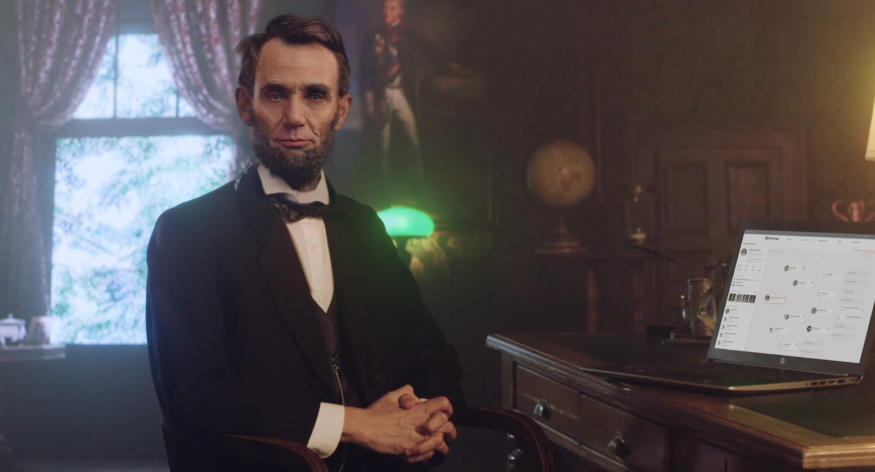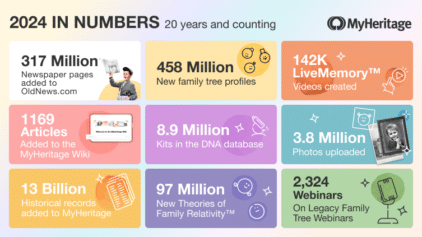

Abraham Lincoln is one of the most prominent figures in the history of the United States, and one of the most influential presidents of all time. Ahead of his birthday on February 12, and President’s Day on February 15, MyHeritage has released a new ad that lets you see Lincoln like never before, as he explores his family history on MyHeritage 🙂
The experience of discovering your family history and exploring the lives of your ancestors on MyHeritage can often feel like you’re having a conversation with previous generations. Your ancestors’ stories come to life as you uncover new details about them. It’s almost as if you can hear their voices as the stories unfold.
Seeing Abraham Lincoln speak to us is an example of the profound impact of exploring the past.
The video was created in conjunction with Peach — Content We Like, a global marketing agency. The challenge was how to convincingly put Abraham Lincoln’s face onto an actor’s body.
To do this, Peach used two actors, one for Lincoln’s voice and mouth, and the other for his body.
Peach worked together with D-ID.com, a company that specializes in facial reenactment technology. They animated a photo of Abraham Lincoln, directing the head’s movements based on authentic human gestures, then incorporated the movements of the voice actor’s mouth, and superimposed all of this onto a real-life actor to create a lifelike depiction of Abraham Lincoln.
This production, which takes facial reenactment technology and a real human voice-over and stitches them onto a body to depict a historical figure who was never recorded on video, is incredibly unique.
Historians claim that Abraham Lincoln loved new technology. We have no way of knowing what Lincoln would really have said about this video, but we’d like to think that it would be something like this witty, self-deprecating remark he made in Painesville, Ohio in 1861: “I have stepped out upon this platform that I may see you and that you may see me, and in the arrangement I have the best of the bargain.” (The Collected Works of Abraham Lincoln, edited by Roy P. Basler, Volume IV, p. 218)







